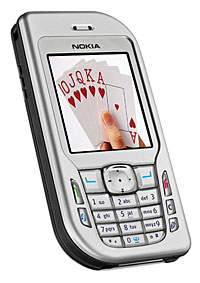 The Economist is a publication that we regard highly. It’s not for nothing that they gained a strong reputation. Sadly a recent piece on the Digital Home let them down.
The Economist is a publication that we regard highly. It’s not for nothing that they gained a strong reputation. Sadly a recent piece on the Digital Home let them down.
In the 3-9 September issue of The Economist, the leader on page 14 tells readers that ‘Most people will never turn their homes into electronic control centres‘ (sub) and that ‘convergence’ will fail.
It’s a well written, witty piece that sadly not only demonstrates the writers lack of understanding of the subject, but their disconnection with the current news.
This summary pieces doesn’t do justice to the full article starting on pages 68 which grasps many of the issues far better.
Returning from a week at IFA, I have some sympathy with the idea that the ‘dream’ that the consumer electronics (CE) companies are try to sell to the public are unlikely to be met immediately – especially in Germany where it is a well known economic fact that the population are holding on to their money with ever more zeal, in terror of losing their jobs in the current economic uncertainty.
I sat in successive press conferences, listening to each CE company CEO tell the assembled analysts and hacks that, unlike the technology companies, They Understood the consumer. This lead them to announce a parade of nearly idential product line-ups, which frankly all blurred into one.
 This was repeated with halls and halls of identikit stands. Remove the brand names and it would have been a challenge to tell them apart.
This was repeated with halls and halls of identikit stands. Remove the brand names and it would have been a challenge to tell them apart.
The exception was Sony, whose bold attempt to live their strap-line, ‘Like.no.other’, lead to a stand that didn’t line up endless products, but played with your senses and tickled your emotions. Sadly the majority of journalists _hated_ it – perhaps saying more about the state of journalism in this fields than the stand itself.
The Tech co view
Until now, the main focus of technology companies has been to sell as much equipment and services to the business market. Having reached total saturation, and business becoming unwilling to comply with the endless cycle of upgrades, having acknowledged that the benefit they bring are not matched by the cost and disruption they bring.
Having acknowledged this years back, the tech companies turned their sights on selling more equipment to the home user, to provide the platform for digital entertainment – which brings us to today.
Where The Economist got it wrong #1 – Convergence
The definition of convergence that they use is long outdated. They’ve interpreted it as the do-it-all device, they use the illustration of “a food processor doubling as a pleasure vibrator for women.”
Until recently, there was an argument that the only successfully converged device was the clock radio. Understanding of the problems have moved on and there are now good examples, such as the Sony Ericsson k750i camera phone, which not only works well as a phone, but has made taking photos a breeze. It contains the vital ingredient – no barrier to easy use.
So what is Convergence?
It’s not unreasonable to ask given the number different definitions it’s had.
Perversely, as more marketing departments in more companies have become involved in flogging convergence, the term itself has become divergent.
We think many things are key to real convergence, and these include
One delivery path – the delivery of digital media over an IP connection.
The coming together of what were previously thought of as different businesses – witness News International embracing video gaming including their recent purchase of IGN.
The combining of layers of information with video or audio; adding further depth to the programme that along it could never provide.
 Where The Economist got it wrong #2 – MSMedia Centre PCs are a failure
Where The Economist got it wrong #2 – MSMedia Centre PCs are a failure
One glaring lack of knowledge of current, relevant news is brought out by the Leader, stating that Media Centre PC’s, or ‘converged super-gadgets’ as they refers to them, have been an utter failure (this is lead by the main article which states that they accounted for ‘fewer than 1% of all PC’s sold last year’ ).
While this may be true for last year, it ignores recent figures from Current Analysis, publish on the 29 August, which found that Media Centre PC sales have ‘skyrocketed’ to 43% of all desktop computer retail sales in the US from the previous levels of around 15% in July. A significant percentage in anyone book.
The Leader comments also fundamentally misunderstand Microsoft. Anyone who has spent anytime watching them will know that they will never let the Media Centre become a failure. Microsoft know if they can control the device to store and access digital media, they can dominate the market.
IFA/Economist blunder
Given the derisory view the Economist of digital home, it was more than a little ironic that they were giving away promotional copies at IFA. A clear example of the right hand (marketing) not knowing what the left hand (editorial) was doing.
 Cool, I want one!
Cool, I want one! Ooh, Shiny, new and it rolls up!
Ooh, Shiny, new and it rolls up! Allah says no
Allah says no “Drop the ink cartridge and put your hands on your head!”
“Drop the ink cartridge and put your hands on your head!” After having made the UK wait nearly 9 months since the launch of the
After having made the UK wait nearly 9 months since the launch of the  Those UK’ers who couldn’t wait for the much-desired, multi-media device to arrive had an avenue closed to them after Sony successfully took legal action against grey-importers of Japanese and US equipment.
Those UK’ers who couldn’t wait for the much-desired, multi-media device to arrive had an avenue closed to them after Sony successfully took legal action against grey-importers of Japanese and US equipment. Sun’s Chief Operating Officer Jonathan Schwartz has been speaking at the Progress and Freedom Foundation Aspen Summit about how incompatible strains of DRM from different companies will not be good for the consumer.
Sun’s Chief Operating Officer Jonathan Schwartz has been speaking at the Progress and Freedom Foundation Aspen Summit about how incompatible strains of DRM from different companies will not be good for the consumer. We’ve all known for a long time that TV as we knew-and-loathed-it was under pressure, as people discovered there were things more rewarding in their lives than passively sitting in a darkened room, being bathed in light from a box in the corner of the room, watching whatever the channel controller decided to ‘entertain’ them with.
We’ve all known for a long time that TV as we knew-and-loathed-it was under pressure, as people discovered there were things more rewarding in their lives than passively sitting in a darkened room, being bathed in light from a box in the corner of the room, watching whatever the channel controller decided to ‘entertain’ them with. In 2003 the BBC did some far more interesting research in this area. Of course they found that numbers of hours watched dropped, but what we found significant was that those hours that were being spent in front of the TV, weren’t dedicated to watching it.
In 2003 the BBC did some far more interesting research in this area. Of course they found that numbers of hours watched dropped, but what we found significant was that those hours that were being spent in front of the TV, weren’t dedicated to watching it. Let’s start this week’s news with some nice, old-fashioned, technological paranoia: As a teenager, you start to realise that giving everyone your mobile number, letting people know where you live and freely handing out your email address can be a bad thing. Imagine my surprise then when I found out that the Australian government had
Let’s start this week’s news with some nice, old-fashioned, technological paranoia: As a teenager, you start to realise that giving everyone your mobile number, letting people know where you live and freely handing out your email address can be a bad thing. Imagine my surprise then when I found out that the Australian government had  DRM on motherboards
DRM on motherboards In other news: After years of Apple thinking themselves obviously superior by having just the one mouse button, and after years of jokes about how Mac users are inferior because they can’t use more than the one button, Apple has gone back and decided to bring out a mouse with not one, not two, but three buttons, as well as a four way scroll wheel. They have called their mouse, quite simply,
In other news: After years of Apple thinking themselves obviously superior by having just the one mouse button, and after years of jokes about how Mac users are inferior because they can’t use more than the one button, Apple has gone back and decided to bring out a mouse with not one, not two, but three buttons, as well as a four way scroll wheel. They have called their mouse, quite simply,  Mobile gaming big boys I-Play have released the results of a study which revealed that only 5% of mobile users have ever downloaded a game
Mobile gaming big boys I-Play have released the results of a study which revealed that only 5% of mobile users have ever downloaded a game A further 17.5% were uncertain how to download a game while the rest said that the downloading process itself was tedious.
A further 17.5% were uncertain how to download a game while the rest said that the downloading process itself was tedious. Pricing was seen as a discouraging factor by 51% of the respondents, with 48 percent in favour of free trail versions and 30% saying that that they would go for a game if a friend recommended it.
Pricing was seen as a discouraging factor by 51% of the respondents, with 48 percent in favour of free trail versions and 30% saying that that they would go for a game if a friend recommended it. Forget mobile gaming – the big money’s in mobile gambling, according a report by Informa Telecoms & Media
Forget mobile gaming – the big money’s in mobile gambling, according a report by Informa Telecoms & Media With casinos continuing to migrate their games to mobile, the report predicts growing popularity, although sports betting is expected to be a niche sector by comparison, despite bookmakers being keen to launch mobile applications for their customers to bet on the move.
With casinos continuing to migrate their games to mobile, the report predicts growing popularity, although sports betting is expected to be a niche sector by comparison, despite bookmakers being keen to launch mobile applications for their customers to bet on the move. Those of you struggling to maintain a Wi-Fi connection from next door’s access point may be exclaiming a Victor Meldrew-style, “I don’t belieeeeve it!” at the news of a mighty new world record being set for an unamplified Wi-Fi link.
Those of you struggling to maintain a Wi-Fi connection from next door’s access point may be exclaiming a Victor Meldrew-style, “I don’t belieeeeve it!” at the news of a mighty new world record being set for an unamplified Wi-Fi link. There is now talk of attempts to smash the current Bluetooth record of 1.08 miles.
There is now talk of attempts to smash the current Bluetooth record of 1.08 miles. Sony Whips Out A White PSP
Sony Whips Out A White PSP Google Grabs 47% Of All Searches Online
Google Grabs 47% Of All Searches Online